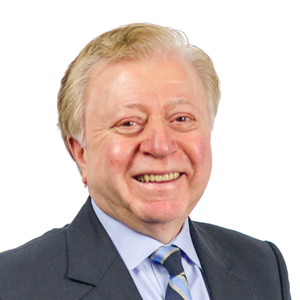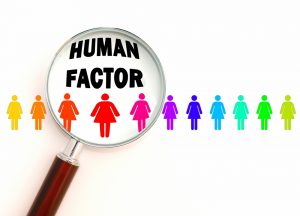The human factor – Professor Cemal Ucer- Ucer Education
Featured Products Promotional FeaturesPosted by: Dental Design 7th December 2019

 People make mistakes, workplace errors happen. In healthcare, the room for error is minimal and mistakes can have serious consequences. While we may sometimes wish that people invariably executed their duties with cold, mechanical precision, the reality is that even the most diligent can have a momentary lapse of concentration or memory slip. Pretending otherwise is simply inviting disaster.
People make mistakes, workplace errors happen. In healthcare, the room for error is minimal and mistakes can have serious consequences. While we may sometimes wish that people invariably executed their duties with cold, mechanical precision, the reality is that even the most diligent can have a momentary lapse of concentration or memory slip. Pretending otherwise is simply inviting disaster.
Last year ,42 patients were recorded by NHS England to have had the wrong tooth/teeth extracted (higher than the previous year’s total of 28).[i], [ii] A patient having the wrong tooth extracted is considered a Never Event, as such an error should be entirely preventable by following existing guidelines. Never Events cause patients harm, and undermine public confidence in care providers.
To actively minimise Never Events and other mistakes we study what are known as human factors (sometimes referred to as ergonomics). The study of human factors looks at the interaction between human psychology and our technology/systems.[iii] A classic example of this are push doors fitted with what appears to be a pull handle. When approaching a door, if no direction of travel is clearly indicated or noticed, people will make an educated guess based upon context clues, which in this case is usually the shape of the handle. Flat panels and horizontal bars indicate the door will push open, while a vertical handle tends to indicate that it needs to be pulled. However, many doors that need to be pushed open misleadingly have the latter type of handle, creating confusion and embarrassment as people guess wrong. Understanding this facet of human behaviour would help design doors where the way to open the door is consistently and implicitly understood, resulting in less mistakes and more efficient passage through buildings.
The above is an example of how engineers and designers can overlook the human element, but the same principal applies to any system. When applied to dentistry, an understanding of human factors can help reduce the potential for mistakes and accidents to occur.
Multitasking and interruptions
Clinicians must be vigilant in order to avoid Never Events and other errors, however, eternal vigilance is unsustainable. Human factors research has shown that vigilance alone is an unreliable safeguard, particularly when tasks require significant concentration, and/or are peformed in a busy environment.[iv] Our limited working memory can become overwhelmed, particularly when forced to divert our attention between multiple demands.[v] While some clinicians may possess an exceptional working memory capacity, which can help cope with task-switching, the truth is that our mental resources are fundamentally finite. While multitasking has been promoted for years as a skill one can develop to be more productive, research has consistently demonstrated that attempting to perform multiple tasks concurrently compromises performance.[vi], [vii] Within a clinical setting, documentation tends to be deprioritised when multitasking.[viii]
Interruptions during clinical care should be minimised to the greatest extent possible. Being interrupted during a task increases cognitive load, stress and anxiety, harms decision making, and can cause lapses in attention, memory and perception.[ix], [x] A study looking at the effect of interruptions in clinical environments found that, when tasks were interrupted, clinicians unexpectedly completed them more quickly. While we may anticipate that tasks would take longer when interrupted, in practice there is a human factor at play – people overcompensate for the perceived loss of time. This is achieved (likely unconsciously) by rushing and shortening or even circumventing steps; which may impact execution and patient safety. The same study found that nearly a fifth of the time, doctors forgot to return to a task after being interrupted.[xi] Educating yourself and your staff on how interruptions and task switching can potentially affect performance, may be helpful in reducing unnecessary distractions.
Stress and burnout
Getting insufficient sleep (less than 7-9 hours), increases fatigue and substantially increases clinical error rates.[xii] Sleep is a complex restorative process and the quality of sleep, not simply the quantity, has a substantial effect on our vulnerability to stress and metabolic function. Better quality sleep improves how we respond to cardiovascular and cortisol stress, with men observed to be more vulnerable to this effect than women.[xiii],[xiv], [xv]
Chronic stress can negatively impact health and result in burnout. The relationship between sleep and stress is bidirectional, as burnout is associated with sleep problems and exhaustion. Exhaustion and burnout can impair memory and concentration, as well as severely compromise a professional’s sense of wellbeing.[xvi], [xvii]
Dentistry can be a stressful profession and substantial numbers of UK dentists are either already affected by burnout or at risk. This is driven by workload, environment and fear over litigation and making mistakes.[xviii],[xix]
Ucer Education’s Postgraduate Certificate (PGCert) in Implant Dentistry (EduQual Level 7) is a one-year dental implant course that trains clinicians in reliable and well-documented implant systems. The course includes education in human factors and risk management, helping clinicians to develop and follow realistic and dependable safety protocols. Ucer Education has a reputation for excellence, and provides learners with the theoretical and practical skills to perform dental implant procedures to the very highest standard.
By improving understanding of human factors in conjunction with technical ability, you can reduce stressors and be confident that you have minimised the risk of errors.
For more information on the PG Cert in Implant Dentistry, please visit www.ucer.education or call 0161 237 1842
References
[i] Provisional publication of never events reported as occurring between 1 April 2018 and 31 March 2019. NHS England. 2019. https://improvement.nhs.uk/documents/5269/Provisional_publication_-__NE_1_April_2018_to_31_March_2019.pdf September 25, 2019.
[ii] Never events reported as occurring between 1 April 2017 and 31 March 2018 – final update. NHS England. 2019. https://improvement.nhs.uk/documents/5135/Annual_NE_report_1_April_2017_to_31_March_2018_FINAL_V5.pdf September 25, 2019.
[iii] Russ A., Fairbanks R., Karsh B., Militello L., Saleem J., Wears R. The science of human factors: separating fact from fiction. BMJ Quality & Safety. 2013: 22(10): 802-808. https://qualitysafety.bmj.com/content/22/10/802 September 19, 2019.
[iv] Odukoya O., Chui M. E-prescribing: characterization of patient safety hazards in community pharmacies using a sociotechnical systems approach. BMJ Quality & Safety. 2013; 22(10): 816-825. https://www.ncbi.nlm.nih.gov/pmc/articles/PMC3966066/ September 25, 2019.
[v] Eriksson J., Vogel E., Lansner A., Bergström F., Nyberg L. Neurocognitive architecture of working memory. Neuron. 2015; 88(1): 33-46. https://doi.org/10.1016/j.neuron.2015.09.020 September 25, 2019.
[vi] Bender A., Filmer H., Naughtin C., Dux P. Dynamic, continuous multitasking training leads to task-specific improvements but does not transfer across action selection tasks. npj Science of Learning. 2017; 2: 14. https://www.nature.com/articles/s41539-017-0015-4September 25, 2019.
[vii] Westbrook J., Raban M., Walter S., Douglas H. Task errors by emergency physicians are associated with interruptions, multitasking, fatigue and working memory capacity: a prospective, direct observational study. BMJ Quality & Safety. 2018; 27(8): 655-663. https://qualitysafety.bmj.com/content/27/8/655 September 25, 2019.
[viii] Walter S., Li L., Dunsmuir W., Westbrook J. Managing competing demands through task-switching and multitasking: a multi-setting observational study of 200 clinicians over 1000 hours. BMJ Quality and Safety. 2014; 23(3): 231-241. https://qualitysafety.bmj.com/content/23/3/231 September 25, 2019.
[ix] Westbrook J., Raban M., Walter S., Douglas H. Task errors by emergency physicians are associated with interruptions, multitasking, fatigue and working memory capacity: a prospective, direct observational study. BMJ Quality & Safety. 2018; 27(8): 655-663. https://qualitysafety.bmj.com/content/27/8/655 September 25, 2019.
[x] Westbrook J., Coiera E., Dunsmuir W., Brown B., Kelk N., Paoloni R., Tran C. The impact of interruptions on clinical task completion. BMJ Quality & Safety. 20; 19(4): 284-289. http://dx.doi.org/10.1136/qshc.2009.039255 September 25, 2019.
[xi] Westbrook J., Coiera E., Dunsmuir W., Brown B., Kelk N., Paoloni R., Tran C. The impact of interruptions on clinical task completion. BMJ Quality & Safety. 20; 19(4): 284-289. http://dx.doi.org/10.1136/qshc.2009.039255 September 25, 2019.
[xii] Westbrook J., Raban M., Walter S., Douglas H. Task errors by emergency physicians are associated with interruptions, multitasking, fatigue and working memory capacity: a prospective, direct observational study. BMJ Quality & Safety. 2018; 27(8): 655-663. https://qualitysafety.bmj.com/content/27/8/655 September 25, 2019.
[xiii] Bassett S., Lupis S., Gianferante D., Rohleder N., Wolf J. Sleep quality but not sleep quantity effects on cortisol responses to acute psychosocial stress. The International Journal on the Biology of Stress. 2015; 18(6): 638-644. https://doi.org/10.3109/10253890.2015.1087503 September 25, 2019.
[xiv] Massar S., Liu J., Mohammad N., Chee M. Poor habitual sleep efficiency is associated with increased cardiovascular and cortisol stress reactivity in men. Psychoneuroendocrinology. 2017; 81: 151-156. http://dx.doi.org/10.1016/j.psyneuen.2017.04.013 September 25, 2019.
[xv] Hirotsu C., Tufik S., Andersen M. Interactions between sleep, stress and metabolism: from physiological to pathological conditions. Sleep Science. 2015; 8(3): 143-152. https://doi.org/10.1016/j.slsci.2015.09.002 September 25, 2019.
[xvi] Hirotsu C., Tufik S., Andersen M. Interactions between sleep, stress and metabolism: from physiological to pathological conditions. Sleep Science. 2015; 8(3): 143-152. https://doi.org/10.1016/j.slsci.2015.09.002 September 25, 2019.
[xvii] Jonsdottir I., Dahlman A. Endocrine and immunological aspects of burnout: a narrative review. European Journal of Endocrinology.2019; 180(3): 147-158. https://doi.org/10.1530/EJE-18-0741 September 25, 2019.
[xviii] Larbie J., Kemp M., Whitehead P. The mental health and well-being of UK dentists: a qualitative study. British Dental Association. 2017. https://bda.org/about-the-bda/campaigns/Documents/The%20Mental%20Health%20and%20Well-being%20of%20UK%20Dentists.pdf September 25, 2019.
[xix] Collin V., Toon M., O’Selmo E., Reynolds L., Whitehead P. A survey of stress, burnout and well-being in UK dentists. British Dental Journal. 2019; 226: 40-49. https://www.nature.com/articles/sj.bdj.2019.6 September 25, 2019.









